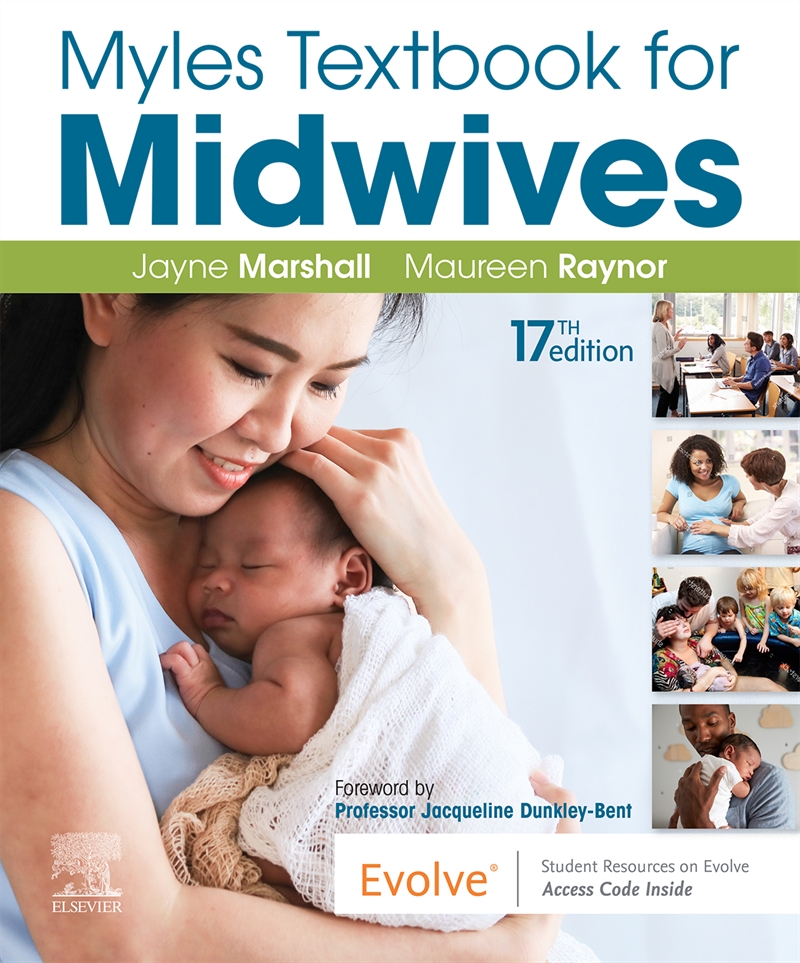We are very excited to announce that, for the first time ever, information about SCAD has been included in a textbook for midwives, distributed in more than 75 countries. This will increase awareness of SCAD among student midwives and hopefully lead to earlier diagnosis and treatment for women who have a SCAD during or after pregnancy.
Beat SCAD was approached two years ago by Elsevier, the publishers of the Myles Textbook for Midwives. We were asked to contribute a section on SCAD for the 17th edition, which has just been published. Current figures suggest that around 10% of SCAD patients are pregnant or post-partum women and they tend to have worse outcomes than other SCAD patients.
Dr David Adlam, lead UK SCAD researcher and Consultant Cardiologist at Glenfield Hospital, Leicester, said: “The critical first step in cases of spontaneous coronary artery dissection is ensuring a rapid accurate diagnosis. This ensures patients are in a place of safety where their condition can be looked after by experts. Educating healthcare professionals to be aware and look out for SCAD is vital. This project complements a huge effort by Beat SCAD and the UK SCAD clinical team to disseminate knowledge about SCAD to our Midwifery colleagues, and we are sure this will reduce the numbers of patients with delayed diagnosis of pregnancy associated or post-partum SCAD.”
Neil Stewart, Editorial Director, Maternity & Midwifery Forum, added: “As medical science advances so the knowledge of more rare risks in pregnancy emerges and can be identified. So expands the range of risk factors that Midwives need to be aware of and recognise. Earlier diagnosis enables effective treatment and helps women understand future risk. This is a valuable addition to the knowledge base of midwifery and a timely inclusion into their education.”
The story started back in April 2018 when Beat SCAD Trustee Karen Rockell secured a speaking opportunity for the charity at a meeting of 40 Lead Midwife Educators in London. Trustee Sarah Coombes and fellow SCAD survivor Victoria Warnes-Elgie presented, alongside Dr Abtehale Al-Hussaini (Dr Abi), Consultant Cardiologist at Chelsea and Westminster Hospital.
Following a discussion with Professor Jayne Marshall, co-editor of the textbook, Sarah was invited to contribute an entry about SCAD for the new edition.
We were very pleased to be involved in this project as it has enabled us to:
- Highlight the importance of SCAD in a textbook that is widely read by student midwives globally, hopefully reducing the number of times SCAD gets missed and misdiagnosed among pregnant and recently pregnant women.
- Highlight the fact that some clinicians are now supporting women through successful post-SCAD pregnancies using a multidisciplinary team approach based on individual risk assessment. This counters many other published articles which have tended to say that clinicians never recommend pregnancy after SCAD.
- Include a SCAD case study featuring Nicki Owen, to show how the perception that young, fit, pregnant women showing cardiac symptoms can’t be having a cardiac event, needs to change.
- Provide a link to the video ‘You might die if you have a baby’, which tells the stories of Victoria and another SCAD patient, Hayley, and focuses on Dr Abtehale’s work in this area.
- Provide student midwives with links to the SCAD stories of Rachel, Robyn and Victoria.
- Ensure the European Position Paper on SCAD was included as a resource.
Beat SCAD would like to thank Professor Marshall for the opportunity and Victoria, Haley, Nicki, Rachel and Robyn for their contributions to this brilliant result for the SCAD community.
If you have not yet told your SCAD or P-SCAD story, please consider doing so – you never know where your story could end up being told! Click here for more information.
The section on Spontaneous Coronary Artery Dissection was published in the Myles Textbook for Midwives 17th Edition, Authors Jayne Marshall and Maureen Raynor, Page 367, Copyright Elsevier 2020. Cover and page image reproduced by kind permission.

